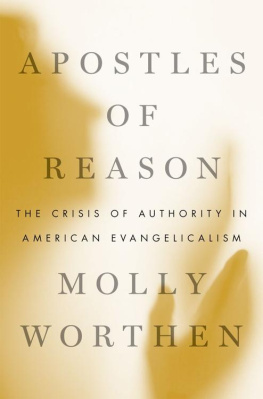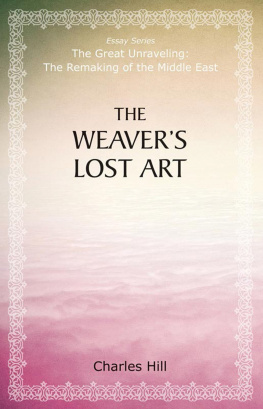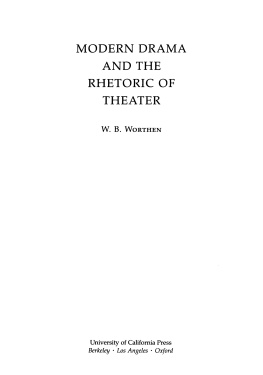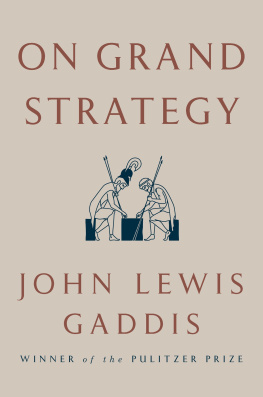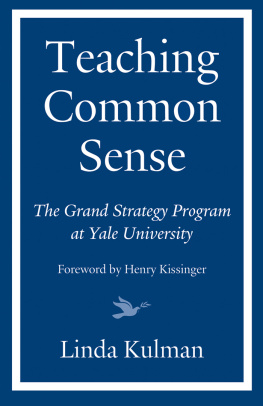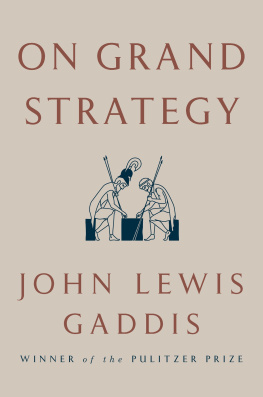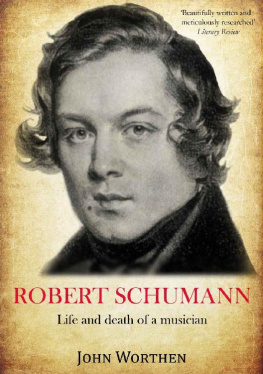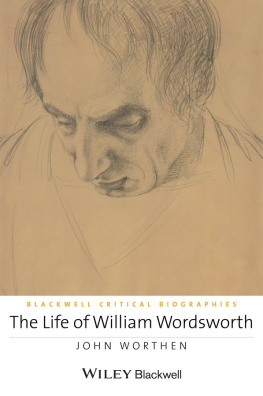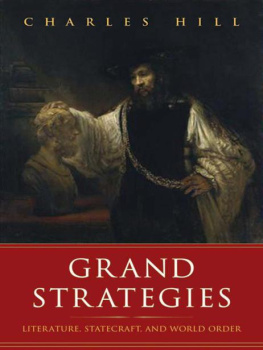The Grand Strategy of
Charles Hill
HOUGHTON MIFFLIN COMPANY
BOSTON NEW YORK
2005
Copyright 2005 by Molly Worthen
ALL RIGHTS RESERVED
For information about permission to reproduce selections
from this book, write to Permissions, Houghton Mifflin Company,
215 Park Avenue South, New York, New York 10003
Visit our Web site: www houghtonmifflinbooks.com.
Library of Congress Cataloging-in-Publication Data
Worthen, Molly.
The man on whom nothing was lost the grand strategy of
Charles Hill / Molly Worthen.
p. cm
Includes index
ISBN -13: 978-0-618-57467-4
ISBN -10: 0-618-57467-0
1 Hill, Charles, 1936 2 DiplomatsUnited StatesBiography
3 Political consultantsUnited StatesBiography. 4. United
StatesForeign relations19451989 5 United StatesForeign
relations1989 6. Hoover Institution on War, Revolution, and Peace
Biography 7. College teachersConnecticutNew HavenBiography.
8. Yale UniversityBiography. 9. Worthen, Molly. I. Title.
E 840 8 H 535 W 67 2005
327.73'0092dc22 2005013233
Book design by Melissa Lotfy
A NOTE ABOUT THE TYPE
This book is typeset in FF Scala, the award-winning typeface designed
by Martin Majoor in 1990 The form principle of FF Scala finds its roots
in the first vertically-stressed typefaces of the mid-eighteenth century
French typographer Pierre Simon Fournier, with influences from the
humanist model as found in the first printing types.
PRINTED IN THE UNITED STATES OF AMERICA
QUM 10 9 8 7 6 5 4 3 2 1
For my family
John, Julie, and Danny Worthen
ACKNOWLEDGMENTS
This book would never have happened without the help of many people. Foremost are Charlie Hill and his family, whose cooperation, patience, and trust allowed the biography to be the intimate and accurate portrait that I hope it is. I am also grateful to International Security Studies at Yale University for providing me a home for the eighteen months that I needed to research and write.
Kate Epstein and her parents, Tony and Karen, always had a spare bed waiting for me when interviews and archival work took me to Washington, D.C. They lent me their car andwhen I needed a place to interview the former ambassador to Israeltheir living room, where their cat, Prancer, was a charming host as well, climbing into the ambassador's lap and nuzzling him all through his account of the Lebanon War.
I spent several weeks working through Charles Hill's papers at the Hoover Institution at Stanford University, a task made substantially easier by the help of the archivists there, particularly Grace Hawes, Carol Leadenham, and Linda Bernard. I cannot say enough to thank George and Michelle Caughey, who housed me, fed me, lent me their car, and humored me at their dinner table every night while I rambled on about my latest findings. The only person more generous with his patience was their son Devin, who was at my side from the origins of this project during our junior year at Yale through the very end.
Several friends and teachers were of critical assistance, either by reading the manuscript or by listening to me talk about it so much that they might as well have read it. Justin Zaremby read the entire manuscript in its earliest incarnation and was the first one to convince me that I may have pulled off something worthwhile. Michael Morgan spent long, brow-furrowing evenings with pen in hand, patiently weaning me off my addiction to semicolons. Andrew Horowitz treated me to weekly lunches of wise advice and Tater Tots in our old college dining hall, without which I would have been much hungrier and far crankier. Kevin Sladek spent hours deliberating over potential titles with me, even though I was too fearful to let him read the manuscript. Deborah Friedell had more confidence in me than I had in myself. Aaron Lemon-Strauss treated me like a celebrity whenever I was in a bad mood. Aaron O'Connell was a priceless problematizer and strategist on matters on and off the page. Becca Baneman, Sandra Chwial-kowska, David Goa, and Jeff Miller were all great listeners and even better cheerleaders, each in his or her own way, and they are only a few of the countless friends and classmates who helped me on the endless slog of writing a biography. Additionally, the students and staff of Jonathan Edwards College provided fellowship, humor, and encouragement throughout my time at Yale and beyond.
David Brooks was an enthusiastic supporter of my work from my junior year, when I was his student in a Yale seminar, through the end of the project, when he read the manuscript and wrote a column about it in the New York Times. Without his help, no literary agent or publisher would have taken the book seriously. Without his ability to make a college undergraduate feel like a respected peer, I don't know whether I would have been able to take myself very seriously, either. My thanks, as well, to my agent, Andrew Wylie, and to my editor at Houghton Mifflin, Amanda Cook, who was instrumental in guiding the book into its final form.
This book began as a term paper in John Gaddis's seminar class, The Art of Biography. John oversaw the project from its beginningswhen I was too nervous even to ask Charlie to let me write about himthrough the end of my undergraduate career, when he advised my senior thesis on Charlie's role in the Iran-Contra affair and convinced me that I was writing a book whether I realized it or not. John made this book happen, in body and in spirit: he read every draft of every chapter and secured the office space and funding that allowed me to commit myself full-time and turn an idea into reality. I learned what it meant to be a biographer in John's classroom, but I actually became one during those hours after class, in his office, at his dinner table, or in front of the fireplace in his living room, where he was my advocate, critic, and guide. He is the finest mentor a student could hope to have. He is the reason that my college career ended with a true education, not just a Yale diploma.
Finally, a word on the dedication. My family is my ballast, and they have made everything possible. Their influence may be found on every page of this book, as in everything that I have done and will do.
PREFACE
Professor Hill found my first paper lacking. "At times, you almost begin to analyze the text," he wrote, "only to invariably wander off into pretentious displays of pseudopsychological erudition. C." It was my first grade at Yale, and I deserved it. The assignment was to write about Herodotus, and I guessed from the faces of my classmates in Hill's History and Politics freshman seminar that I had not been alone in mangling the father of history with nervous overreaching. Something about Professor Hill made us wildly anxious to prove ourselves, evidently to the point of self-ruin. I could not pinpoint what we found so intimidating. As yet, we didn't know enough about him to be awed by his rsum. We had no idea that he had been a Foreign Service officer for most of his life, not an academic; that he had been one of the most influential "advisers to the prince" in recent diplomatic history, counseling Henry Kissinger, George Shultz, and Boutros Boutros-Ghali. But I later learned that even worldly-wise graduate students who took the celebrated Grand Strategy seminar co-taught by Hill still felt, in his unsmiling presence, as tense as we freshmen did.
The Yale landscape has a way of humbling the most bushy-bearded and aristocratic professor, for no matter the cold line of his spectacles and the imposing length of his bibliography, he cannot help the fact that he is surrounded by gargoyles and Gothic turrets. The lecture hall shrinks him to the manageable size of an average human being. Somehow Professor Hill was immune to these laws of scale. He was like the unblinking moon.
Next page

